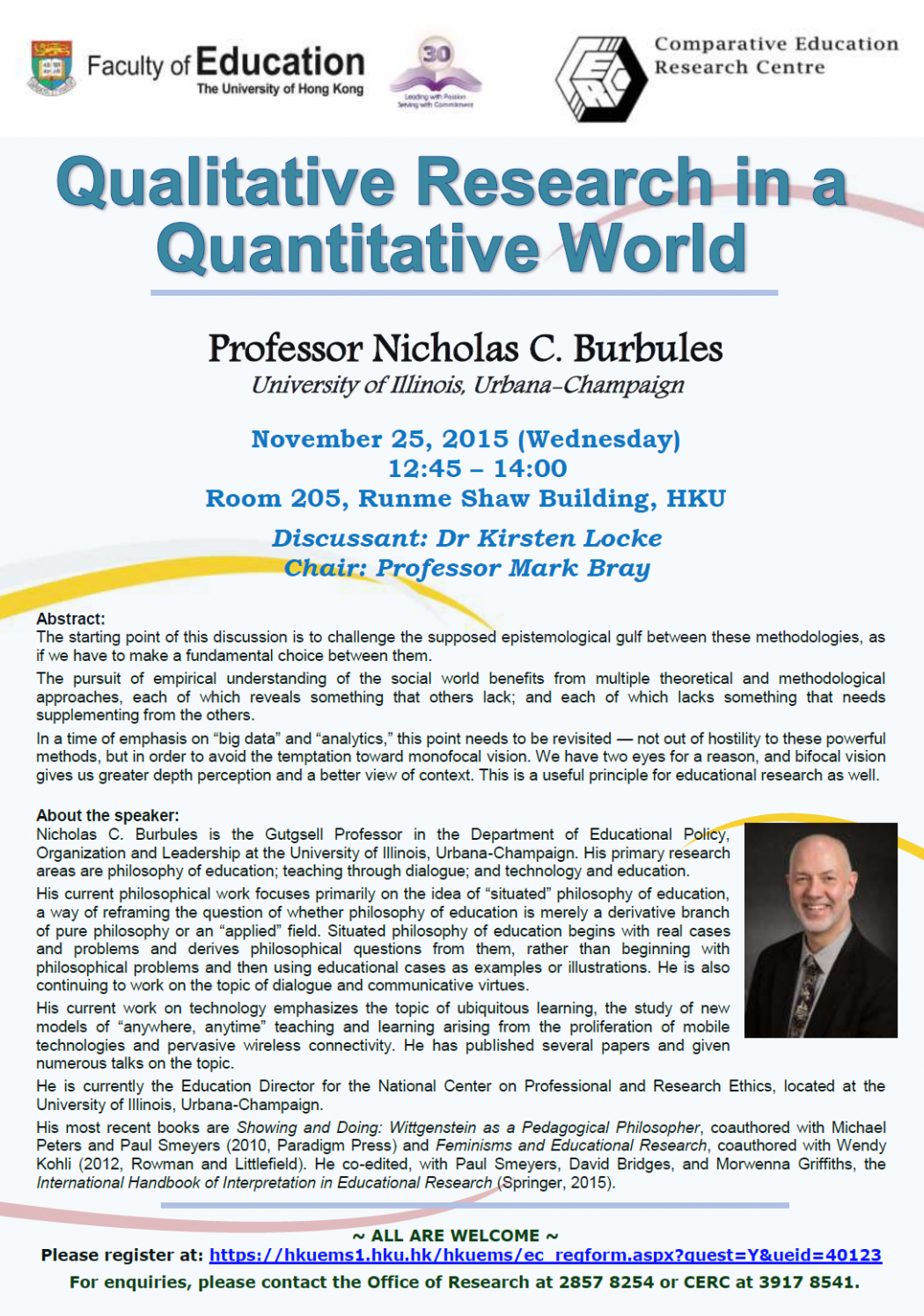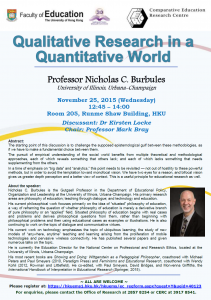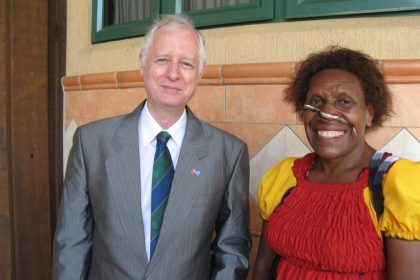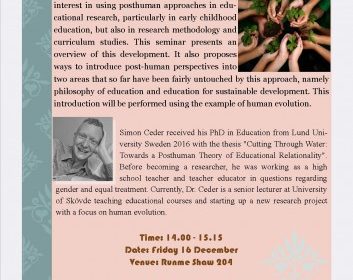Professor Nicholas C. Burbules
University of Illinois, Urbana-Champaign
November 25, 2015 (Wednesday)
12:45 – 14:00
Room 205, Runme Shaw Building, HKU
Discussant: Dr Kirsten Locke
Chair: Professor Mark Bray
The starting point of this discussion is to challenge the supposed epistemological gulf between these methodologies, as if we have to make a fundamental choice between them.
The pursuit of empirical understanding of the social world benefits from multiple theoretical and methodological approaches, each of which reveals something that others lack; and each of which lacks something that needs supplementing from the others.
In a time of emphasis on “big data” and “analytics,” this point needs to be revisited – not out of hostility to these powerful methods, but in order to avoid the temptation toward monofocal vision. We have two eyes for a reason, and bifocal vision gives us greater depth perception and a better view of context. This is a useful principle for educational research as well.
Nicholas C. Burbules is the Gutgsell Professor in the Department of Educational Policy, Organization and Leadership at the University of Illinois, Urbana-Champaign., and the Education Director for the National Center on Professional and Research Ethics. His primary research areas are philosophy of education; teaching through dialogue; and technology and education.
His most recent books are Showing and Doing: Wittgenstein as a Pedagogical Philosopher, coauthored with Michael Peters and Paul Smeyers (2010, Paradigm Press) and Feminisms and Educational Research, coauthored with Wendy Kohli (2012, Rowman and Littlefield). He co-edited, with Paul Smeyers, David Bridges, and Morwenna Griffiths, the International Handbook of Interpretation in Educational Research (Springer, 2015).
Kirsten Locke is a Lecturer in the School of Critical Studies and Associate Dean of Teaching and Learning in the Faculty of Education and Social Work at the University of Auckland, New Zealand. Her research interests include philosophical enquiries into gendered academic career trajectories.

















